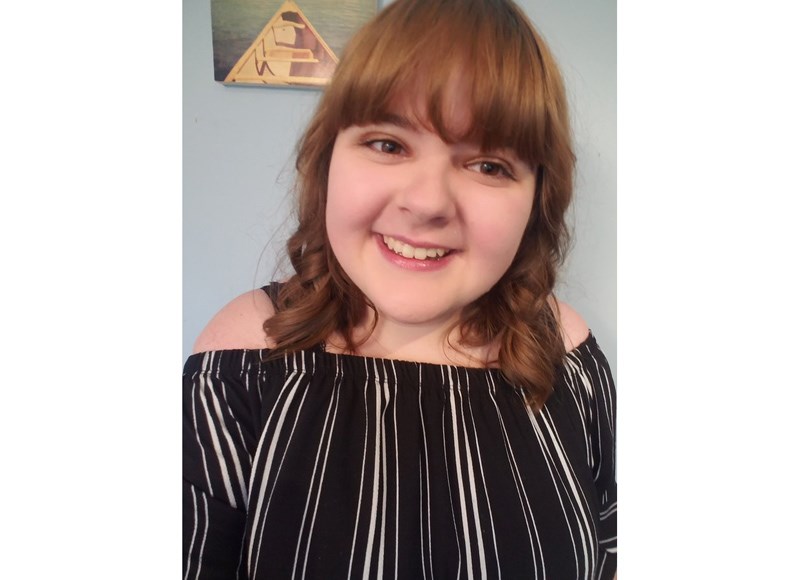A recent University of Northern British Columbia (UNBC) graduate who is passionate about mental health and addictions will be among the next cohort of the B.C. legislative internship program.
Sarah Ash, who graduated with a degree in global and international studies and political science, from UNBC, was accepted into the six-month program and will be heading to Victoria to learn the ropes of the legislature in January.
“What's really great about the internship is it'll give me a lot about work experience, working within legislation to understand how our government works,” said Ash, explaining she had heard about the program in her second year, but as she got closer to graduation became more interested in applying.
B.C. Legislative interns gain first-hand experience in the parliamentary system and contribute directly to the work of the executive and legislative branches of government.
It is intended to help interns learn about the mandate and scope of a ministry, conduct research in policy and planning areas, and even assist with projects related to legislation.
“I'm hoping that like with the internship, I get to explore some other areas of interest, part of the internship is that we did get to get placed briefly within a ministry to understand the mandate and scope."
The program consists of two weeks of intensive orientation and training one in January and one in February followed by a four-week placement in a ministry or statutory office under the direction of an assigned mentor.
Interns will then do a placement in a political party caucus at the Legislative Assembly and this placement typically aligns with the Legislative Assembly’s spring session dates and up to two one-week placements in an MLA’s constituency office.
Ash said she hopes to be placed within the Ministry of mental health and addictions or within the Ministry of Social Development and poverty reduction as that has been her working area for the last two years.
She has been working at the Association Advocating for Women and Community (AWAC) as a shelter worker and then in the last year she moved into outreach positions and is currently placed working with the community transition team up at the Prince George Regional Corrections Centre.
“I think was in the middle of my degree when I very first started working in this area, and I think I learned that I actually do have quite a bit of an interest in it and that's passion, and would like to continue,” said Ash.
“I am interested in seeing how maybe I could apply my two interests and I'm hoping that the internship programs can definitely help open my eyes a bit to those possibilities.”
Ash said she thinks it's really important to be able to speak about issues in northern B.C. especially since many of the resources in the north are extremely spread out compared to the Lower Mainland.
“So, I'm very interested to see on a provincial level, how do we go about this, especially when we are continuing to be in the middle of an opioid crisis. This is one very small part of the six-month internship, but I am hoping that is one of the many things I can get out of it,” said Ash.
Ash was a Rotary Youth Exchange student from 2015 to 2016 and lived abroad for a year which was what inspired her to pursue education in the area of peace and conflict resolution.
“I do see myself working somewhere within politics on some level and I am interested in maybe working within a ministry but that's what I'm hoping to explore during this time,” noted Ash.
When thinking about future career goals Ash said she would love to combine her experience working with addictions with the international studies side of her degree, to explore working with addictions on a global scale.
“But when we deal with Canada, I think it's great to kind of understand the division between federal and provincial jurisdiction and so that's what I think is great about the internship program is that it really gets to a very hands-on and key understanding of that difference in jurisdiction.”
The B.C. Legislative Internship Program was established in 1976, and is a non-partisan program was modelled on the federal Parliamentary Internship Program introduced in the Canadian House of Commons in 1969.
Faculty members of the then three major universities in British Columbia initiated the program. Today, the program is advised by Simon Fraser University, the University of British Columbia, the University of Northern British Columbia, and the University of Victoria.



